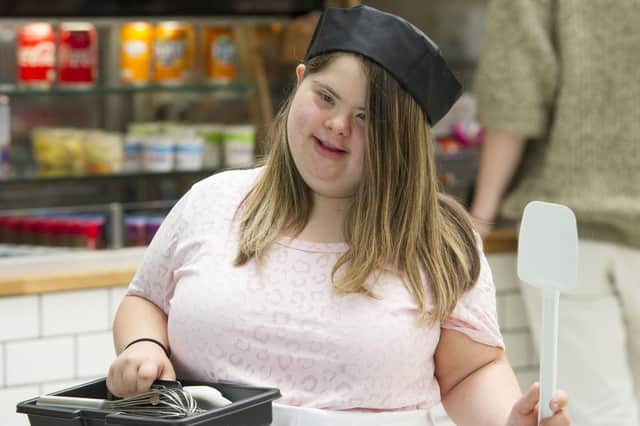'Transition system should be modernised' - Young adults with Down's syndrome not given enough support


Down’s syndrome Scotland (DsS) has found that people transitioning through the education system to their adult life can be challenged by inconsistencies in the provision of specialist support, particularly during secondary school.
Several parents told DsS that support can drop significantly when their child moves from primary to secondary school, or from a special needs school to a mainstream setting.
Advertisement
Hide AdAdvertisement
Hide AdAs well as issues existing for transitioning from primary to secondary, DsS said that problems can arise when individuals move into adult life.
Move to adult life
Rachel Murray, 20, from Edinburgh, experienced problems when moving from her supportive high school to college.
Ms Murray’s school felt she was ready for a mainstream college course in cooking, whereas the college felt she would be best placed on a non-mainstream course.
Her mother, Lynn, from Corstorphine, said: “We had a situation where the two parties saw the transition from differing perspectives.
Advertisement
Hide AdAdvertisement
Hide Ad“Rachel did join the course in the end but I feel that we got off on the wrong foot with college and that set the tone for the journey.
“Rachel completed the course but it was felt by college staff that she couldn’t take the next logical step. She now attends college on a very part-time basis, but still gets to cook there.
“In my opinion the transition system for young people with Down’s syndrome is not geared up for the move from special needs school to non-mainstream placements, and therefore needs to be modernised.”
A set of Principles of Good Transitions were developed by the Scottish Transitions Forum which “inform, structure and encourage the continual improvement of support for young people with additional needs during their transition to adult life”.
Advertisement
Hide AdAdvertisement
Hide AdHowever, according to DsS members, there are a number of parents and schools who are not aware of the Principles of Good Transitions, and there is little or no planning until young people reach the last months of school.
A group including teachers, allied health professionals, parents, the Scottish Government and the Scottish Transitions Forum are working with DsS to find ways to improve the experiences of young people and families as they move through their school years into adulthood.
Eddie McConnell, chief executive of DsS, said: “People with Down’s syndrome deserve the best possible start in their adult life.
“Working with relevant actors, we want to ensure that all young people in Scotland, who just happen to have an extra chromosome, have access to effective support to allow them to follow their chosen path in the adult world.”
Advertisement
Hide AdAdvertisement
Hide AdDsS are looking to raise awareness through their #takeastepforward campaign during Down’s syndrome awareness week which runs until March 22.
Transitioning, employability, community and health are the four areas in which the charity is looking to highlight.